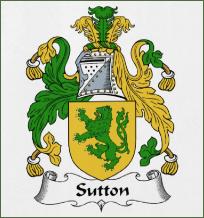 |
||||
MURDER OF STEPHEN PETTUS
A horse with a lifeless body tied to its back wandered up to a York District farmhouse in early 1846. The body on the horse was Stephen Pettus, plantation owner. Four of his slaves were soon apprehended and charged with the crime. Such murders were unusual, but not remarkable, but the sequence of events that followed the murder is most interesting and helps to instruct us about the times. Records are incomplete and we can only surmise some of the events that followed the discovery of Pettus's body. There was a trial within the month. William Clawson, an in-law, neighbor and lawyer, became both the defense attorney for the accused slaves and administrator of Stephen Pettus's estate. W. I. Clawson, William Clawson's relative, was commissioner of equity for York District. He presided over the trial, but the case was not heard in regular court because slave codes required that slaves be tried in "slave courts." The slaves had admitted guilt from the beginning. Clawson sentenced the slaves to be sold to "parts West" and to never return to South Carolina. Thomas Pettus, a cousin of Stephen Pettus, was selected to escort the slaves and sell them. His eligibility was based on the fact that he had occasionally served as a sheriff's deputy and had been to Alabama "three or four times." Thomas Pettus was deputized by the sheriff to carry out the court's assignment. Having been involved in the building of "carryalls," the Southern frontier's version of the Plains covered wagon, he decided to take along a half-dozen to sell to Alabamians planning to move further West. The wagons carried a large number of Seth Thomas clocks on consignment from the firm of McElwee & Sutton of Yorkville. McElwee & Sutton would give Pettus a commission on the clocks he sold. Before he left, Pettus advertised that he would deliver letters and papers for hire as far as Chambers City, AL. The slaves were sold for $2,800, and the money turned over to the estate of the murdered man. Were there alternatives available for the Clawsons, Pettuses, and other lawyers and slaveholders when faced with slave-committed murders? In their eyes, to execute the slave and thereby lose the financial benefit to the estate seemed unreasonable. In some Southern states, but not in South Carolina, the law provided that the state reimburse the slaveholder the full market value if the slave were found guilty of murder. South Carolina had no state penitentiary building before the Civil War. To imprison would be to place people in the county jail, which was large enough to accommodate only a few prisoners. County jails were designed for short -term incarcerations, not for a life time. There is no way to tell what motivated the slaves to commit the murder. Slaves courts were not required to set down the testimony and they required only the agreement of a magistrate and three citizens. The law did not require an attorney for the slave's defense, either. Clawson charged Stephen Pettus's estate $50 for defending the slaves who murdered him. Ironically, selling the murderers to "parts West" took care of the estate's best interest. In 1846 the West was Alabama, Mississippi and Louisiana. Demand for slaves to work the virgin cotton fields was high. The price Thomas Pettus got was the average price for a field hand in Alabama that year. Probably, "Sol and three others" wore ankle chains and walked the distance to Alabama. That would fit the descriptions of the time. Certain towns, such as Chambers City, AL, were known to have "depots," or "pens," which were constructed much like cattle stalls but tighter in order to prevent escaptes. There the slaves were held until the scheduled auctions. Pettus probably received cash for the four slaves. When he returned he charged Stephen Pettus's estate $36 for "trip expenses." |
||
